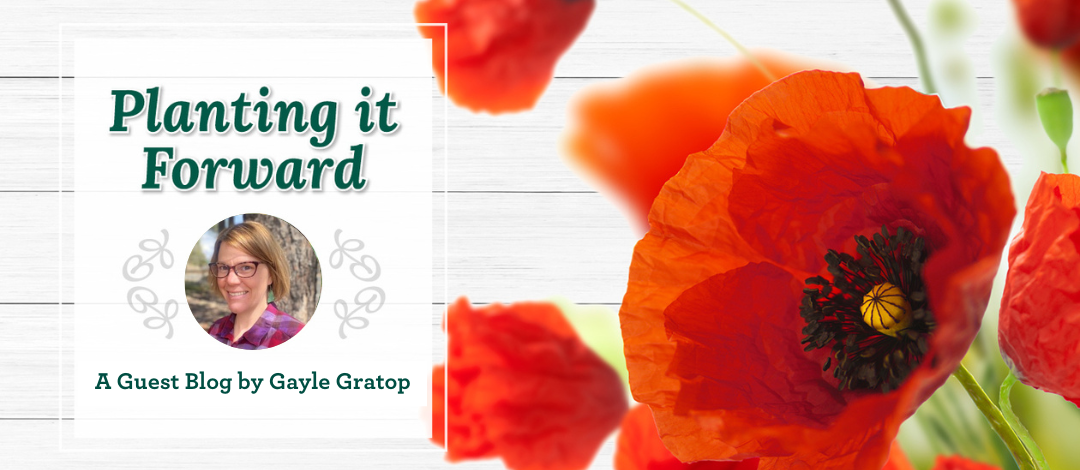
During the height of the pandemic, when most of us were working from home, I was sent a link to a recorded Zoom video about horticultural therapy. I had never heard of horticultural therapy, but during the presentation, I learned that it is a professional practice that is used to improve lives by connecting people with plants. Being a plant lover, a professional horticulturalist, and an instructor for Arizona Cooperative Extension’s Master Gardener Program, I was immediately hooked. I enrolled in a certificate program and began the process to become a registered horticultural therapist.
Things began to return to normal in the summer of 2021. Our County Extension office reopened to the public and students were back in the classroom at Killip Elementary School, a stone’s throw from our office in Sunnyside. But in August 2021, a devastating flood ripped through the neighborhood.
As many of you may remember, a few years ago, the Museum Fire burned the mountain above our town. A major rain event occurred on the burn scar to produce this flood, one of the largest flooding events in Flagstaff’s history. We were trapped in our county building when the floodwaters hit. Waters rushed down our street, creating whitewater rapids between our office and nearby Killip. Our building was spared but the elementary school was not so fortunate. Water and sludge coursed into the school and students and teachers were trapped inside. It was a traumatic event for all.
The stress the children had experienced from the pandemic was now exacerbated by this disaster. Just days into the new school year, students were, again, back at home in front of computer screens for their lessons. Students faced yet another ordeal; the school was so badly damaged by the flood that it was unusable.
But there was hope. Plans for a new school were in place prior to the flooding. And a community group of local partners, including Coconino Cooperative Extension, was awarded a national grant as one of 10 cities to make nature equitable and accessible for all students through the Green Schoolyards Initiative. Killip was selected as our pilot school, and I was asked to be a part of the Flagstaff team specifically because of my training in horticultural therapy. With both the pandemic and post-wildfire flooding, if ever there was a school that could benefit from wellness programming, Killip was it.
Thanks to the support of many community partners and Master Gardeners, several children from Killip have participated in a gardening wellness program that uses plants to improve mood, develop social skills, and instill appreciation for living things, including each other. If you’re a regular Warner’s customer and you’re reading this blog, you are most likely aware of the social, emotional, and other health benefits that are associated with gardening.
In the Grow with Us Gardening Club, students learn that plants have special adaptations that allow them to thrive in difficult situations. Plants are resillient and so are kids. Students learn that people and plants have a lot in common; we need nutrients, water, a place to live, and light to stay healthy. Students practice mindfulness techniques by taking in the sights, smells, and sounds found in the garden. They work together to grow plants from seed, care for them, and enjoy the sweet rewards of their labor. They also unite to tidy up the mess that typically results when kids, water, soil, and seeds come together!
One of the most positive observations I make during our time together is that the children seldom leave the garden feeling bad. No matter what happens during the day, it all gets left behind when they walk through the garden gate. They eagerly search the beds for veggies to pick, run through the tall sunflowers, socialize, and work together to care for the garden, a garden that was covered in flood debris and heavy equipment just a year ago.
And if there are fresh strawberries or cherry tomatoes to taste, things don’t get much better than that.
Gayle Gratop
Assistant Agent, Family Consumer and Health Sciences
The University of Arizona
Coconino County Cooperative Extension